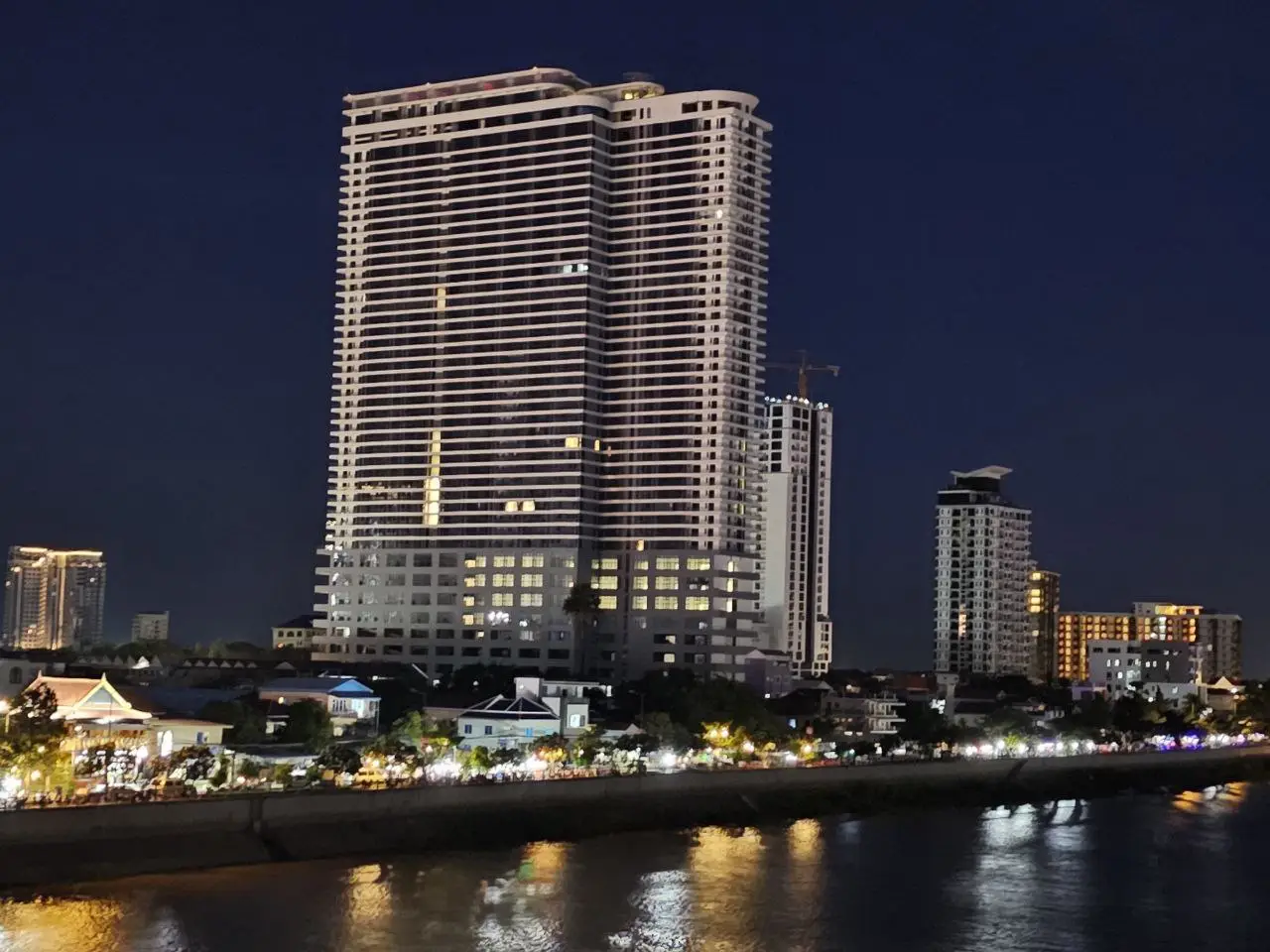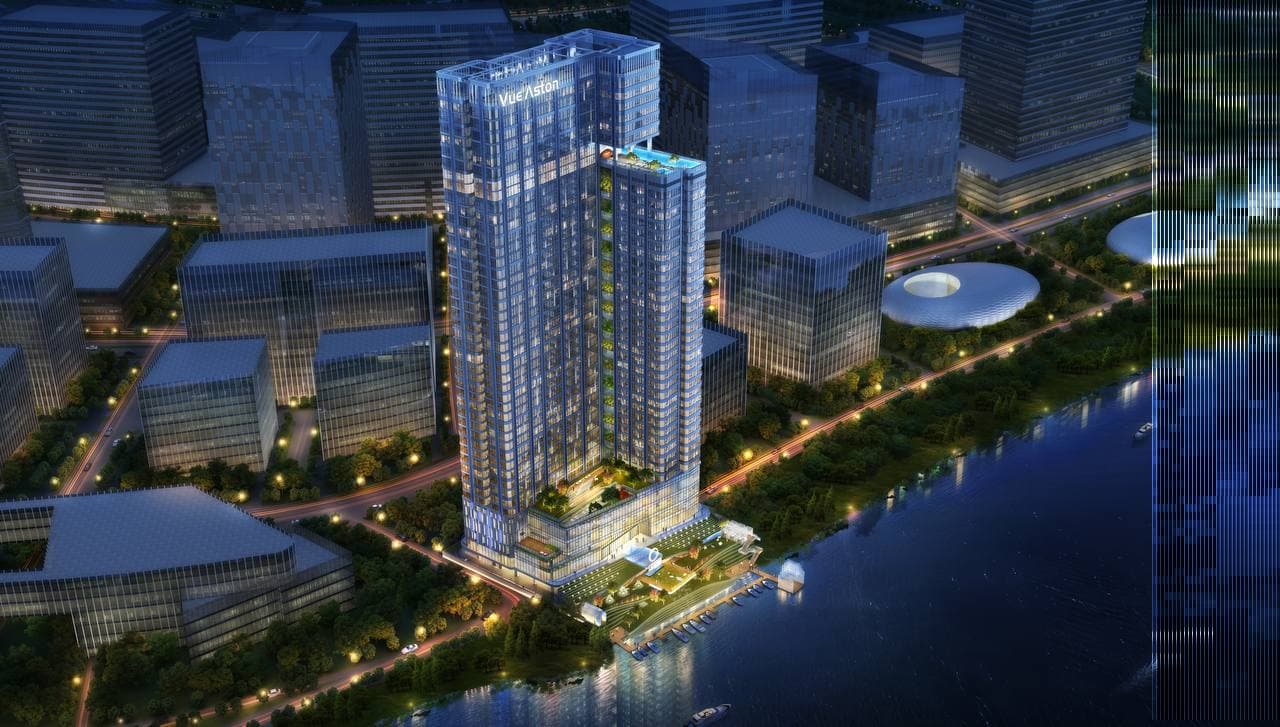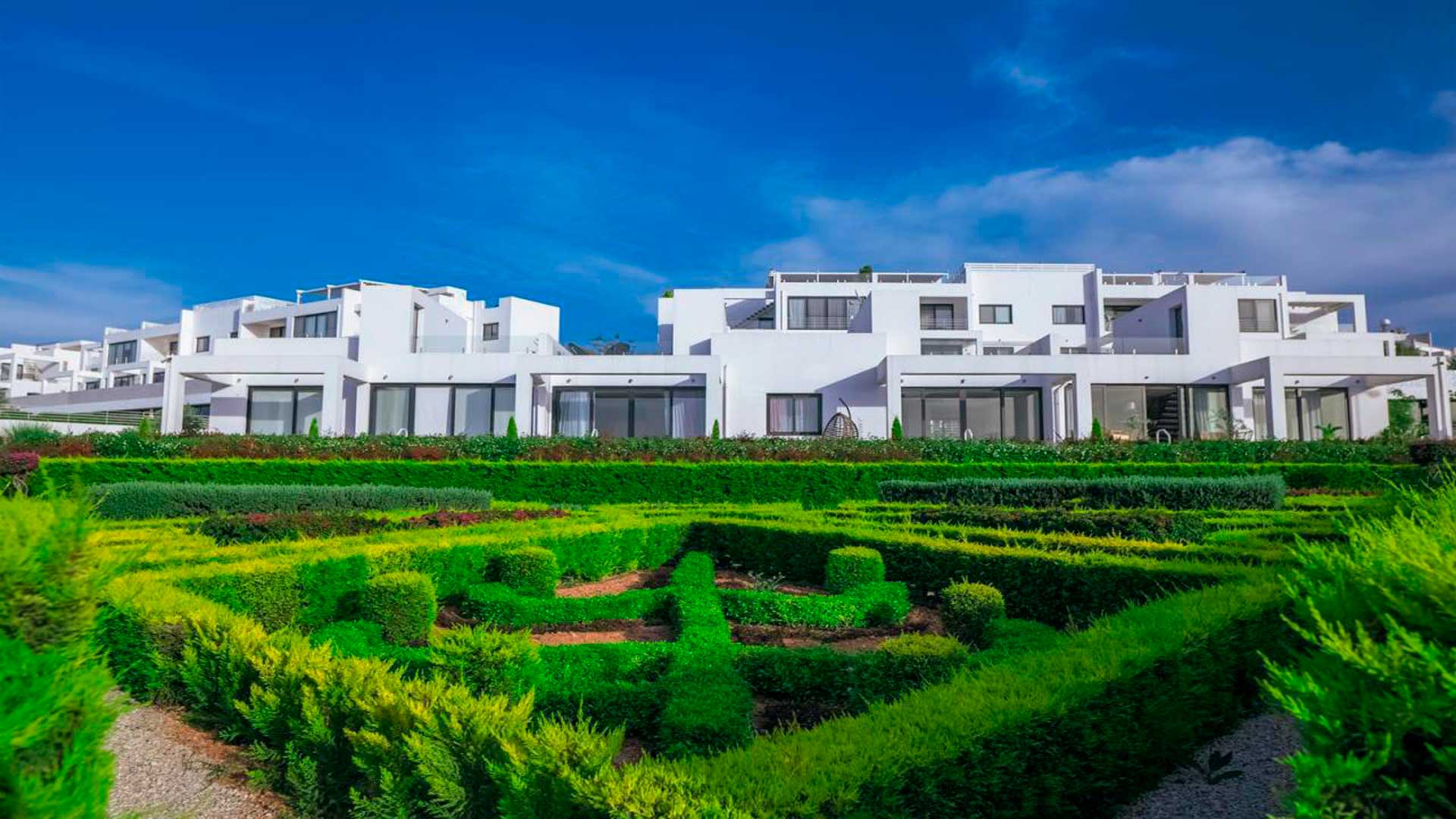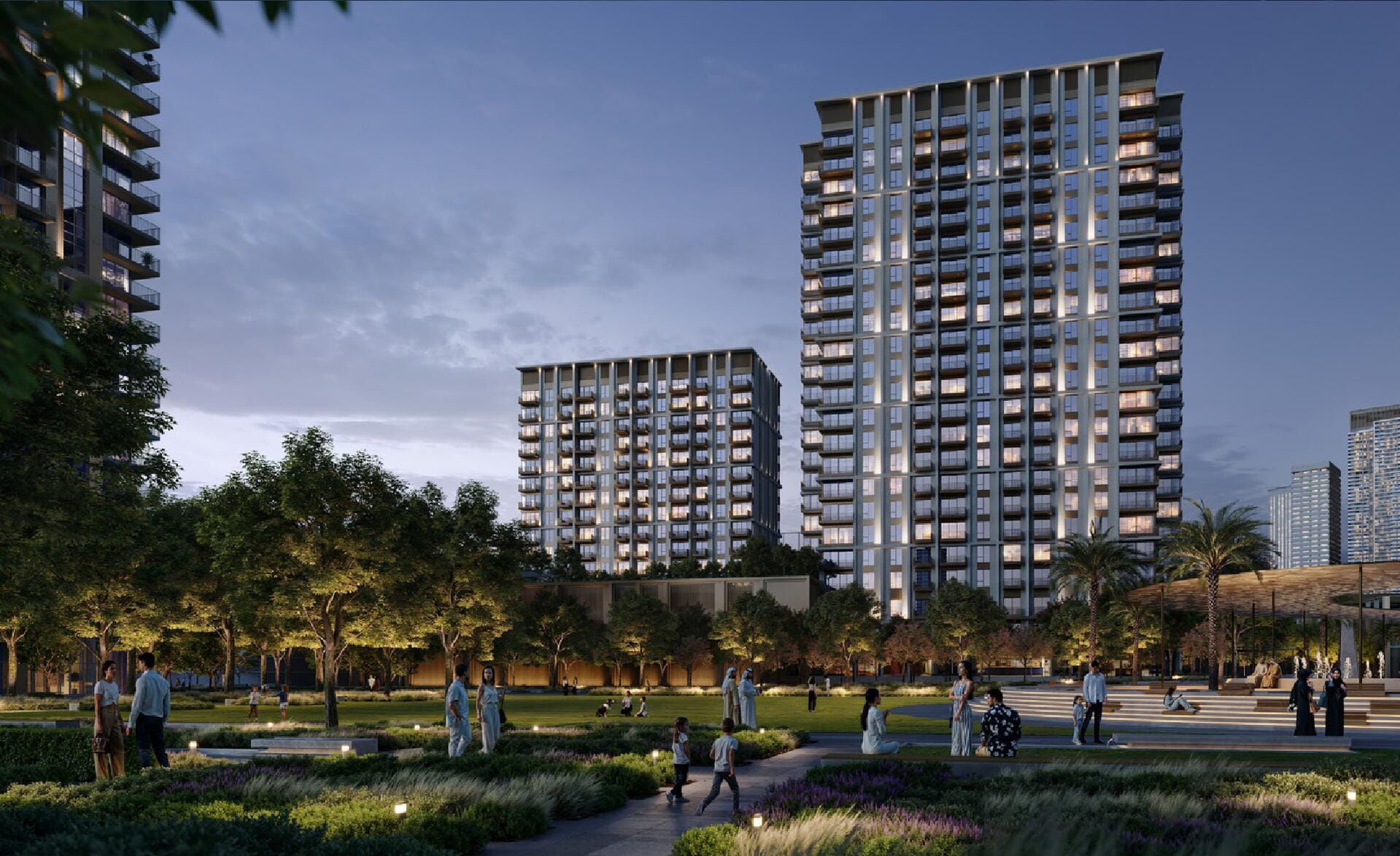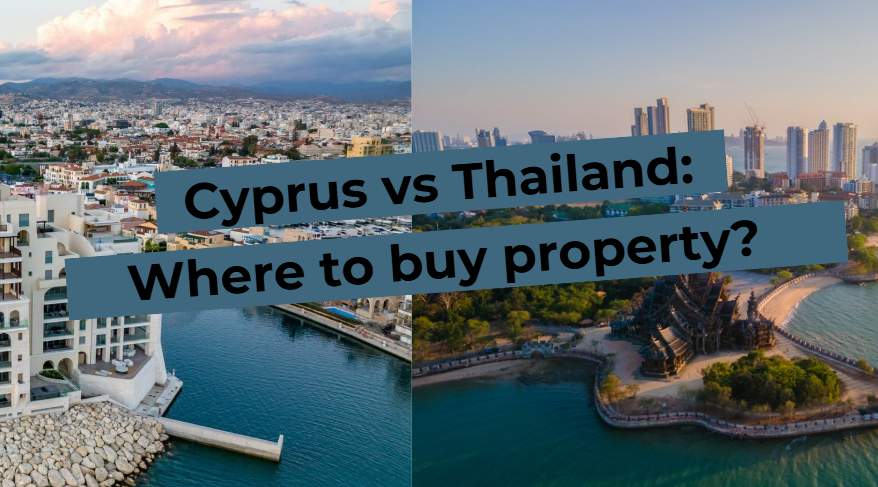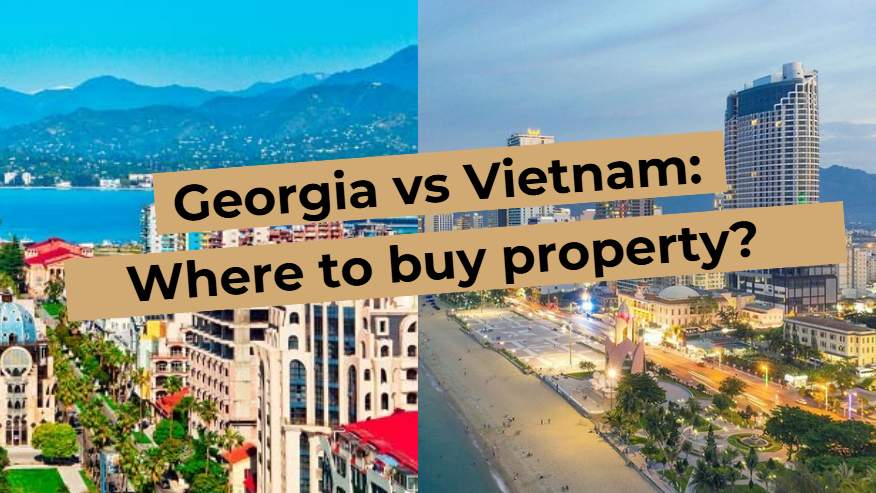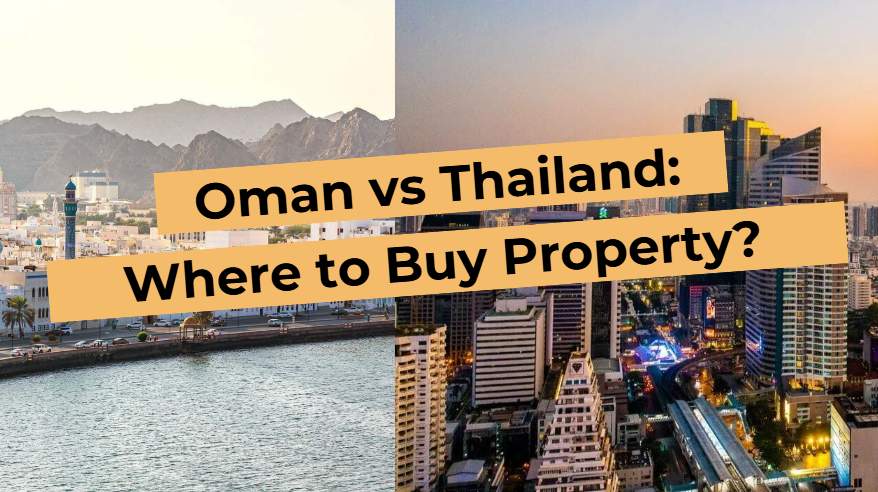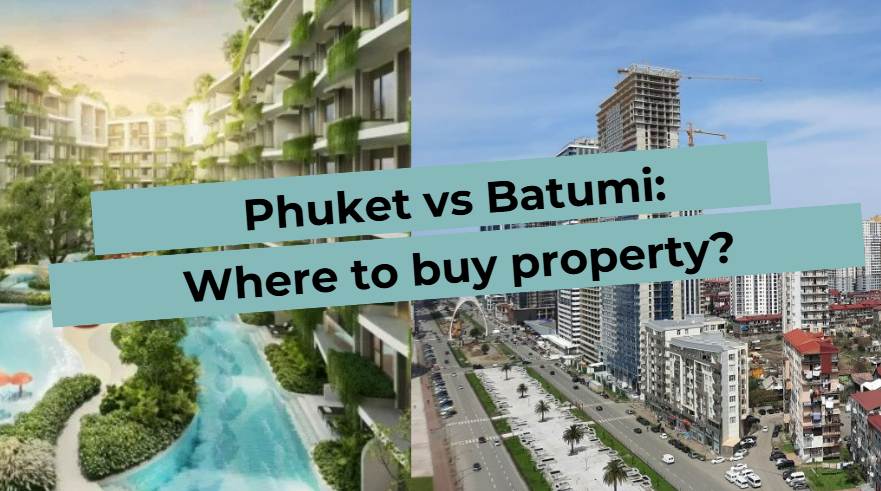
Buying real estate in Cambodia for a foreigner


Real Estate Specialist
Cambodia is becoming an increasingly popular destination for foreign investors looking to purchase real estate. With a unique culture, a growing economy and affordable home prices, this country attracts the attention of many. But before diving into the world of Cambodian real estate, it's important to understand the local laws and regulations to avoid trouble. In this article, we will look at the main aspects of buying real estate in Cambodia for foreigners, including legal status, forms of ownership and possible risks.
Why does Cambodia attract foreign buyers?
Cambodia is not just a country with a rich history and beautiful landscapes, but also a place where foreigners can find excellent real estate investment opportunities. Imagine: you wake up under the tropical sun, and outside the window you have a view of green rice fields or azure sea. This is not a dream, but a reality for many who decide to buy Cambodian real estate.
Benefits of Cambodia
- Rapidly growing economy. Cambodia has shown impressive economic growth of around 7% per annum in recent years. This creates a positive atmosphere for investment. I remember driving past new shopping centers and residential complexes in Phnom Penh in 2019. The city was really changing before my eyes!
- Unique culture. Cambodia is famous for its rich history and cultural heritage. The temples of Angkor, picturesque villages and traditional festivals attract tourists from all over the world. This creates additional demand for rental property, making it a profitable investment.
- Affordable real estate prices. Unlike many other countries in Southeast Asia, real estate prices in Cambodia remain relatively low. For example, you can find a cozy apartment in the center of Phnom Penh for only 50-80 thousand dollars. I have seen such offers myself, and it is really impressive!
The real estate market in Cambodia today
At the moment, the real estate market in Cambodia is actively developing. According to various studies, the demand for housing in major cities such as Phnom Penh and Sihanoukville continues to grow. Many foreigners are considering buying real estate not only for personal residence, but also for subsequent rent.
Legal status of foreigners in Cambodia
Now let's understand whether foreigners can buy real estate in Cambodia. Briefly answer: yes, they can, but with certain restrictions. Legislation allows foreigners to own condominiums, but there are nuances that are important to know. For example, according to the law, foreigners can own no more than 70% of the total number of apartments in one building.

Basic laws and regulations
Cambodian real estate law can seem complicated for newcomers, but with the right information and support from legal professionals, things become easier. The main laws governing foreigners' property rights include the Real Estate Law and the Condominium Law. These documents clearly define how foreigners can acquire and own real estate in the country.
In the next part, we will take a closer look at the possible forms of ownership for foreigners and their peculiarities.
Possible forms of ownership for foreigners
When it comes to buying real estate in Cambodia, it's important to understand the options available to foreigners. Let's break down the main forms of ownership.
Condominium ownership
One of the most popular ways for foreigners to own real estate in Cambodia is to buy condominiums. As mentioned above, foreigners can own up to 70% of the total number of condos in a single building. This is a great opportunity for those who want to invest in housing in the city center.
For example, I have seen several new residential complexes in Phnom Penh where condominiums are selling for between $1,000 and $2,000 per square meter. This is quite affordable, especially when you consider that many of these complexes offer modern amenities such as swimming pools, gyms and 24-hour security.
However, it is worth remembering that the condominium registration process requires care. You will need to prepare all the necessary documents, and it is best to contact a local lawyer who can help you avoid potential pitfalls.
Land lease (long-term lease)
If you want to have more control over the property than is possible with a condominium purchase, it is worth considering a long-term land lease. In Cambodia, foreigners can lease land for up to 99 years. This allows you to build a house or commercial building without worrying about legal restrictions on ownership.
I remember when an acquaintance of mine who decided to invest in business in Sihanoukville leased a plot of land for 50 years. He built a small hotel that quickly became popular with tourists. But it is important to remember that even when renting land, you need to carefully check all the terms of the contract and make sure it is being followed.
Ownership through a local company
Another way for foreigners to purchase real estate in Cambodia is to set up a local company. This gives the opportunity to own land and real estate through a legal entity. However, it is worth noting that the process of registering a company can be complicated and will require additional costs.
I know several foreigners who have chosen this path. It is important that the company is registered correctly and complies with all local laws. This can be a good option for those who are planning serious investments in real estate.
Nominal owners
Some foreigners use nominee owners to circumvent restrictions on direct land ownership. This means that you can register the property in the name of a local citizen who will act as nominee owner. However, this approach carries certain risks.
I have heard several stories of people running into problems when their nominee owners refuse to honor agreements. Therefore, if you decide to use this method, be sure to consult a lawyer and carefully choose a reliable partner.
Advantages and risks of buying real estate in Cambodia
Buying real estate in Cambodia is attracting more and more foreign investors, and for good reason. The country offers unique investment opportunities thanks to its growing economy, rich culture and affordable home prices. However, before deciding to buy, it is important to weigh up the benefits and risks associated with the process. In this table, we'll review the main pros and cons to help you better understand what to expect in the Cambodian real estate market.
| Advantages | Risks and challenges |
|---|---|
| 1. Affordable housing prices | 1. Currency risks |
| Real estate prices in Cambodia remain competitive compared to other countries in the region, making it an attractive investment destination. | A Cambodian realtor may offer prices in US dollars, but currency fluctuations can negatively affect your profit. |
| 2. No capital gains taxes | 2. Legal aspects |
| There are no capital gains taxes in Cambodia, avoiding additional costs when selling real estate in the future. | There can be bureaucratic complications in the real estate market, especially if you are not familiar with local laws. |
| 3. Investment attractiveness | 3. Problems with documents |
| Growing demand for rental housing and infrastructure development are creating a favorable environment for investment. | Foreigners sometimes encounter problems due to insufficient document verification or lack of necessary licenses. |
Buying real estate in Cambodia is not only an opportunity to improve your financial situation, but also a chance to become part of a rapidly developing country with a rich culture. However, as with any investment process, it is important to be aware of the potential risks and plan your steps carefully. Understanding the benefits and challenges of the real estate market will help you make informed choices and avoid trouble. If you have questions or would like assistance with the real estate buying process, don't hesitate to contact the experts who will help you every step of the way on this exciting journey.
Stages of buying real estate in Cambodia
Now that we have covered the basic aspects of owning real estate in Cambodia, let's move on to the practical steps that will help you successfully go through the buying process. It may seem complicated, but with the right approach and preparation you can avoid most of the pitfalls.
Searching for an object
The first step is to look for real estate. There are many ways to find a suitable property in Cambodia. You can contact local real estate agencies that can offer you a wide range of options. I remember an acquaintance of mine finding his perfect apartment through an agency in Phnom Penh. They helped him not only with his search but also with all the necessary paperwork.
It is also worth checking out specialized websites such as Realestate.com.kh or Khmer24, where you can view listings and compare prices. Don't forget about local markets, where you can often find favorable offers from owners.
Real estate due diligence
Once you have found a few interesting properties, it is important to do a thorough due diligence. This includes checking all the property documents, previous owners' histories and the legal cleanliness of the deal. I have heard of cases where people have lost money because they did not check all the details.
Be sure to check that the property has no encumbrances or debts. It is best to contact a lawyer who can help you with this check. This may seem costly, but trust me, it will save you a lot of nerves and money in the future.
Signing of the sale and purchase agreement
When all the checks have been completed and you are confident in your choice, the next step is to sign the contract of sale. It is important that the contract clearly spells out all the terms of the transaction, including price, terms and any additional obligations.
I always recommend my friends to read every clause of the contract carefully and don't hesitate to ask questions. If something seems unclear, it is better to discuss it with a lawyer. Protecting your interests at this stage is the key to a successful transaction.

Property registration
After signing the contract, you need to register the property with the state authorities. This process can take some time, so be prepared to need patience. It usually requires all the documents you have collected, including the sales contract, ID card and other necessary papers.
Be sure to specify what fees and taxes you will need to pay. This will help you avoid unexpected costs in the future.
Payments and taxes
When buying real estate in Cambodia, it is important to consider finances. In most cases, settlements are made in US dollars, which simplifies the process. However, it is worth being attentive to tax obligations. For example, the tax on the purchase of real estate is 4% of the value of the object.
You should also be prepared for annual property taxes, which can vary depending on location and property type. I recommend familiarizing yourself with the tax rates in advance to avoid getting into a bad situation.
Taxes and fees when buying and owning real estate
Now let's take a closer look at the taxes and fees that may arise when buying and owning real estate in Cambodia.
| Type of tax/levy | Rate/conditions | Approximate cost (USD) | Notes |
|---|---|---|---|
| Real estate purchase tax | 4% of the total value of the object | Example: 4,000$ for an object with a value of 100,000$ | Payment within 30 days of signing the contract. |
| Annual property tax | Approximately 0.1% of the appraised value | Example: 100$ for an object with a value of 100,000$ | The rate may vary depending on location. |
| Tax on rental income | 20% from rental income | Example: 200$ for a rental income of 1,000$ per month | Records of income and expenses must be kept. |
Opportunities and restrictions for renting out real estate properties
If you decide to invest in real estate in Cambodia, renting it out can be a great way to generate passive income. However, before you start, it is important to understand the legal aspects and opportunities that the market offers.
Legal aspects of renting real estate by foreigners
According to Cambodian law, foreigners have the right to rent out their properties. However, there are certain rules that must be taken into account. For example, if you own a condominium, you can rent it out without any restrictions. But if it is a plot of land, there may be some difficulties.
I remember an acquaintance of mine faced bureaucratic difficulties when he tried to rent out a piece of land that he had leased. He had to go through many procedures to make sure he complied with all local laws. So before you rent out your property, be sure to consult a lawyer to avoid problems.

Rental income and tax benefits
Renting out real estate can be a very lucrative endeavor. Depending on the location and type of property, you can earn between $300 and $1,500 per month. For example, in tourist areas such as Sihanoukville, the demand for rentals is much higher and prices can reach $2,000 per month.
In addition, property owners can take advantage of certain tax benefits. For example, you can deduct property management expenses such as utilities, repairs or agency services from your taxable income. This can significantly reduce your tax burden.
Average rental rates
Rental rates in Cambodia vary depending on the region and type of property. In Phnom Penh, for example, you can rent out a one-bedroom apartment for $300-600 dollars per month, while in Sihanoukville prices can reach $800-1500 dollars for a similar property. Therefore, if you are considering renting as a way to generate income, it is important to do market research and set reasonable prices.
Obtaining residence permit and citizenship by purchasing real estate
Another important aspect to consider is the possibility of obtaining a residence permit (TPL) and citizenship through real estate investments.
Possibilities of obtaining a residence permit
Cambodia offers several programs for foreign investors who wish to obtain a residence permit. One of the most popular is the program for investors, which allows you to get a residence permit if you invest a certain amount of money in the country's economy, including the purchase of real estate.
Usually a minimum amount of 100,000 dollars is required to obtain a residence permit through investment. This can be either buying real estate or investing in a business. If you are considering this option, be sure to consult with local lawyers who can help you get the paperwork right.

Investments for citizenship
At the moment, Cambodia does not have an official program that allows you to obtain citizenship through real estate investment. However, if you are planning a long-term investment and residence in the country, it can make the process of obtaining citizenship in the future much easier.
I know several foreigners who, after investing money in real estate and living in the country for several years, were able to obtain citizenship. But it is important to remember that in each case individual circumstances must be taken into account and changes in legislation must be kept up to date.
Popular regions of Cambodia for buying real estate
When it comes to buying real estate in Cambodia, several regions stand out for their particular potential and appeal to foreign investors. Let's take a closer look at three of the most popular locations.
Phnom Penh
Phnom Penh, the capital of Cambodia, is the economic and cultural center of the country. This city offers many modern residential complexes, offices and shopping centers. Investing in real estate in Phnom Penh can pay good dividends, especially with the growing demand for rentals.
Approximate house prices in Phnom Penh vary: apartments can be bought for 50,000$ to 150,000$ depending on location and quality, while houses start from 150,000$. The high demand for rentals in the city center makes this area particularly attractive to investors.
Sihanoukville
Sihanoukville is a famous resort city on the coast, which attracts tourists from all over the world. Due to the active development of infrastructure and increasing number of tourists, real estate investment here is becoming more and more attractive.
Housing prices in Sihanoukville have increased significantly over the past few years. Apartments can be found priced from 80,000$ to 200,000$ and villas start from 200,000$. This makes Sihanoukville a great place to invest, especially in tourist properties where you can expect high rental income during the vacation season.

Tananga
The Tananga, or "Today" neighborhood has become popular with young professionals and foreign investors. New residential complexes and business centers are being actively developed here, making it a dynamic place to live and work.
In Tanang, apartments are priced from 60,000$ to 120,000$ and commercial properties start from 100,000$. The area attracts young people due to its developed infrastructure and diverse recreational and work opportunities.
In general, Phnom Penh, Sihanoukville and Tananga present excellent opportunities to buy real estate in Cambodia. Each of these regions has its own unique advantages and it is worth considering your preferences, goals and budget when choosing where to invest.
Conclusion
In conclusion, the real estate market in Cambodia offers many opportunities for foreign investors. With a growing economy, affordable prices and a unique culture, this country is becoming increasingly attractive for real estate purchases.
Yes, foreigners can buy real estate in Cambodia, but with restrictions. They can buy apartments and apartments on the upper floors of buildings, but cannot own land directly.
Apartments and commercial premises on the upper floors of apartment buildings are available for purchase by foreigners, but land plots and houses on land are restricted.
Direct land ownership for foreigners is prohibited. However, they can use long-term leases (up to 50 years) or form a joint venture with a Cambodian national for indirect ownership.
The main tax on purchase is stamp duty, which is 4% of the value of the property. There may also be additional registration and legal fees.
No, a residence permit is not required to purchase real estate in Cambodia. However, homeowners can apply for a long-term visa to reside in the country.
Mortgage loans are available to foreigners, but terms and interest rates may vary. Usually, loans for foreigners are only available through certain banks or international mortgage companies.
Additional costs include stamp duty, registration costs, legal fees, document translation fees and agency fees if buying through an agency.
Buying real estate does not entitle you to Cambodian citizenship. Citizenship can be obtained through other forms of investment or long-term residence, but this requires a separate process.
Can foreigners purchase real estate in Turkey?
Yes, foreigners can buy real estate in Cambodia, but with restrictions. They can buy apartments and apartments on the upper floors of buildings, but cannot own land directly.
What types of real estate can foreigners buy in Cambodia?
Apartments and commercial premises on the upper floors of apartment buildings are available for purchase by foreigners, but land plots and houses on land are restricted.
Can a foreigner own land in Cambodia?
Direct land ownership for foreigners is prohibited. However, they can use long-term leases (up to 50 years) or form a joint venture with a Cambodian national for indirect ownership.
What tax do I need to pay when buying a property in Cambodia?
The main tax on purchase is stamp duty, which is 4% of the value of the property. There may also be additional registration and legal fees.
Do I need a residence permit to buy real estate?
No, a residence permit is not required to purchase real estate in Cambodia. However, homeowners can apply for a long-term visa to reside in the country.
Can foreigners get a mortgage in Cambodia?
Mortgage loans are available to foreigners, but terms and interest rates may vary. Usually, loans for foreigners are only available through certain banks or international mortgage companies.
What are the additional costs associated with buying real estate in Cambodia?
Additional costs include stamp duty, registration costs, legal fees, document translation fees and agency fees if buying through an agency.
Can I get Cambodian citizenship when I buy real estate?
Buying real estate does not entitle you to Cambodian citizenship. Citizenship can be obtained through other forms of investment or long-term residence, but this requires a separate process.
